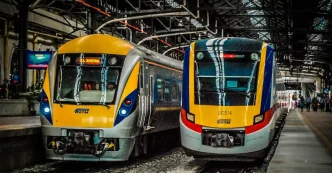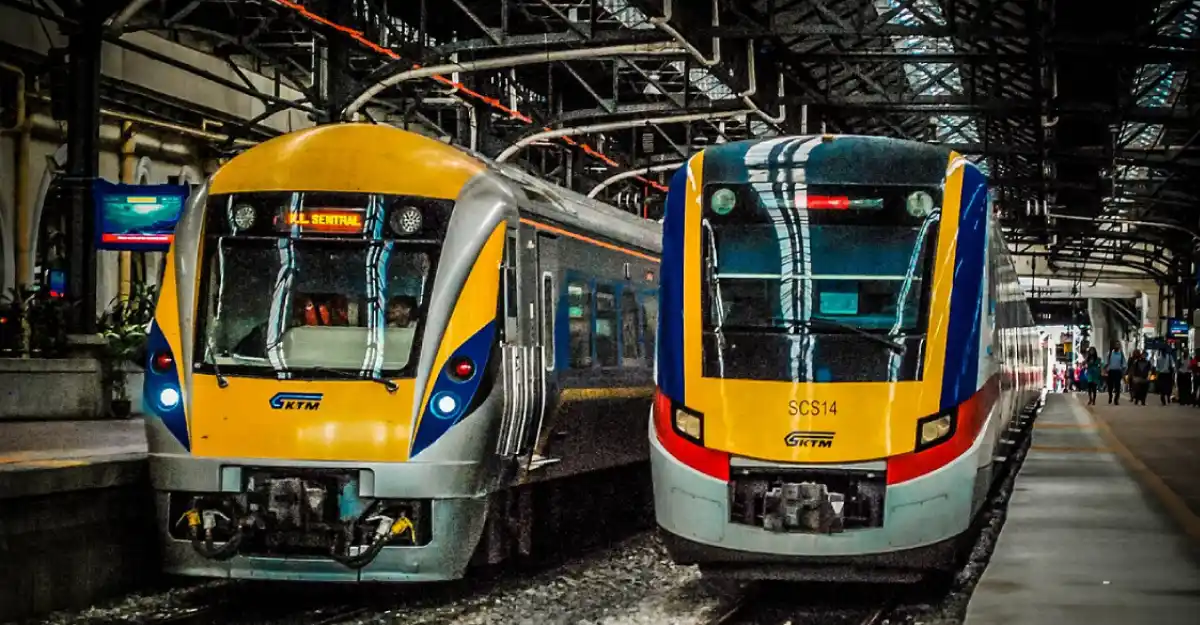Malaysia’s ambitious railway projects, heralded as cornerstones of economic growth and regional connectivity, have hit a significant roadblock. Reports of widespread theft at construction sites have compounded existing delays, raising questions about the security of critical infrastructure and the broader implications for the country’s development goals. As the government scrambles to address these setbacks, industry experts and local communities are left wondering whether these projects can regain momentum.
Site Theft: A Growing Threat to Progress
Recent incidents of theft at railway construction sites across Malaysia have disrupted timelines for several key projects. According to reports from local authorities, materials such as steel, copper wiring, and heavy machinery parts have been systematically stolen, often under the cover of night. These thefts have not only led to financial losses—estimated to run into millions of Malaysian Ringgit (US$ hundreds of thousands)—but have also stalled progress on vital infrastructure meant to connect urban centers and boost trade.
One of the hardest-hit projects is the East Coast Rail Link (ECRL), a flagship initiative under China’s Belt and Road framework. Designed to link the east and west coasts of Peninsular Malaysia, the ECRL promises to cut travel times and spur economic activity in less-developed regions. However, with construction materials vanishing from sites, contractors have struggled to meet deadlines, prompting criticism from stakeholders. A project spokesperson was quoted as saying “We are working closely with local police to enhance security measures” but declined to provide specifics on the scale of the losses.
The thefts are believed to be driven by organized crime syndicates, capitalizing on the high value of scrap metal in black markets. While no official data confirms the full extent of these networks, anecdotal evidence from site workers suggests that lax security and remote locations make these sites easy targets. If left unchecked, this trend could jeopardize not just the ECRL but other infrastructure projects critical to Malaysia’s economic ambitions.
Economic Stakes: Beyond Delays
The financial implications of these setbacks are significant. Malaysia has invested heavily in railway modernization as part of its broader economic transformation plan, with projects like the ECRL costing upwards of 50 billion Malaysian Ringgit (US$11 billion). Delays translate into lost economic opportunities, particularly for regions banking on improved connectivity to attract investment. Small businesses along proposed rail routes, from freight operators to tourism ventures, are already feeling the pinch as timelines stretch indefinitely.
Moreover, the involvement of foreign partners, particularly China in the case of the ECRL, adds a layer of geopolitical complexity. Delays risk straining bilateral ties, especially as costs mount and public scrutiny intensifies. Analysts note that Malaysia’s government, under Prime Minister Anwar Ibrahim, must balance domestic accountability with maintaining confidence among international investors. “Infrastructure is a litmus test for governance” said a Kuala Lumpur-based economist, highlighting the political stakes at play.
Beyond immediate costs, there’s a ripple effect on public trust. Malaysians have long viewed large-scale projects with a mix of hope and skepticism, given past controversies over mismanagement and corruption. While there’s no evidence linking the current thefts to systemic graft, the government’s response—or lack thereof—could fuel perceptions of inefficiency. If security measures aren’t strengthened, the economic fallout could extend far beyond the price of stolen goods.
Security and Policy Challenges
Addressing site theft requires more than just tighter security—it demands a rethinking of how Malaysia protects its infrastructure. Current measures, often limited to private guards and basic fencing, appear inadequate against determined criminals. Some contractors have called for greater involvement of federal police units, while others advocate for technological solutions like surveillance drones and GPS tracking for high-value materials. However, budget constraints and logistical hurdles make such proposals easier said than done.
The issue also exposes broader vulnerabilities in Malaysia’s infrastructure ecosystem. Remote construction sites, often located in rural or forested areas, are inherently difficult to monitor. Poor coordination between local authorities, contractors, and central government agencies further complicates the picture. A policy analyst based in Penang noted “There’s a disconnect in how these projects are managed on the ground” suggesting that better oversight could deter future incidents.
Prime Minister Anwar Ibrahim’s administration has yet to issue a detailed response to the thefts, though officials have promised a crackdown on illegal scrap metal trade. Whether this translates into actionable policy remains to be seen. For now, the government faces pressure to demonstrate that it can safeguard projects central to Malaysia’s economic future, without burdening taxpayers with additional costs.
Community Impact and Public Sentiment
Local communities near affected sites are bearing the brunt of these disruptions in unexpected ways. In areas slated for rail development, residents had anticipated job creation and improved access to markets. Instead, delays have dampened optimism, with some locals expressing frustration over stalled opportunities. “We were told the railway would change everything” said a small business owner in Terengganu, a state along the ECRL route. “Now, we just see empty promises.”
Public sentiment, as gauged through social media platforms like X, reflects a mix of anger and resignation. Many users criticize the government for failing to secure sites, while others point to deeper societal issues, such as poverty and unemployment, that may drive individuals to theft. Though unverified, these online discussions underscore the need for a holistic approach—one that addresses not just security but also the root causes of crime.
Environmental concerns add another dimension. Construction delays often mean prolonged disruption to local ecosystems, with cleared land and unfinished worksites posing risks of erosion and habitat loss. Advocacy groups have urged the government to prioritize sustainable practices, even as it tackles theft-related setbacks. Balancing these competing demands will test the administration’s resolve in the months ahead.
Looking Ahead: Can Malaysia Get Back on Track?
As Malaysia grapples with the fallout from site thefts, the path forward remains uncertain. Strengthening security at construction sites is an immediate priority, but it’s only part of the solution. The government must also address systemic issues—ranging from policy coordination to economic inequality—that enable such crimes to flourish. Without a comprehensive strategy, the risk of further delays looms large, threatening to derail not just railway projects but Malaysia’s broader vision for growth.
For now, stakeholders are watching closely to see how Prime Minister Anwar Ibrahim’s administration responds. With billions of Ringgit and international partnerships at stake, the pressure is on to restore confidence in Malaysia’s infrastructure agenda. As one industry observer put it, “This isn’t just about stolen steel—it’s about whether Malaysia can deliver on its promises.” The answer to that question may shape the country’s economic trajectory for years to come.















